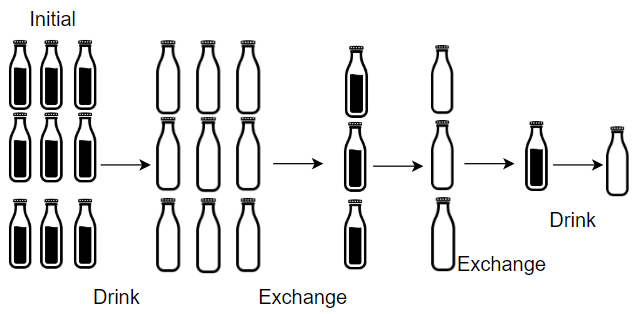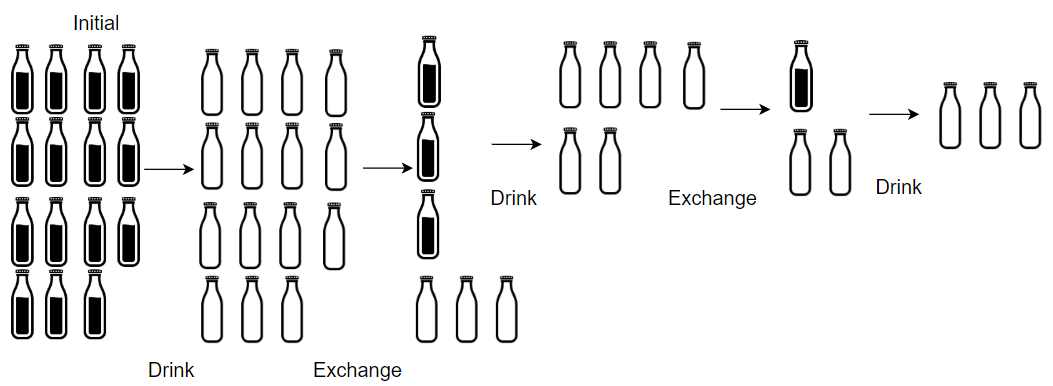There are numBottles water bottles that are initially full of water. You can exchange numExchange empty water bottles from the market with one full water bottle.
The operation of drinking a full water bottle turns it into an empty bottle.
Given the two integers numBottles and numExchange, return the maximum number of water bottles you can drink.
Example 1:
Input: numBottles = 9, numExchange = 3 Output: 13 Explanation: You can exchange 3 empty bottles to get 1 full water bottle. Number of water bottles you can drink: 9 + 3 + 1 = 13.
Example 2:
Input: numBottles = 15, numExchange = 4 Output: 19 Explanation: You can exchange 4 empty bottles to get 1 full water bottle. Number of water bottles you can drink: 15 + 3 + 1 = 19.
Constraints:
1 <= numBottles <= 1002 <= numExchange <= 100
class Solution:
def numWaterBottles(self, numBottles: int, numExchange: int) -> int:
ans = numBottles
while numBottles >= numExchange:
numBottles -= numExchange - 1
ans += 1
return ansclass Solution {
public int numWaterBottles(int numBottles, int numExchange) {
int ans = numBottles;
while (numBottles >= numExchange) {
numBottles -= (numExchange - 1);
++ans;
}
return ans;
}
}class Solution {
public:
int numWaterBottles(int numBottles, int numExchange) {
int ans = numBottles;
while (numBottles >= numExchange) {
numBottles -= (numExchange - 1);
++ans;
}
return ans;
}
};func numWaterBottles(numBottles int, numExchange int) int {
ans := numBottles
for numBottles >= numExchange {
numBottles -= (numExchange - 1)
ans++
}
return ans
}class Solution {
/**
* @param Integer $numBottles
* @param Integer $numExchange
* @return Integer
*/
function numWaterBottles($numBottles, $numExchange) {
$sum = $numBottles;
while ($numBottles >= $numExchange) {
$numBottles = $numBottles - $numExchange + 1;
$sum++;
}
return $sum;
}
}/**
* @param {number} numBottles
* @param {number} numExchange
* @return {number}
*/
var numWaterBottles = function (numBottles, numExchange) {
let sum = numBottles;
while (numBottles >= numExchange) {
numBottles = numBottles - numExchange + 1;
sum++;
}
return sum;
};

